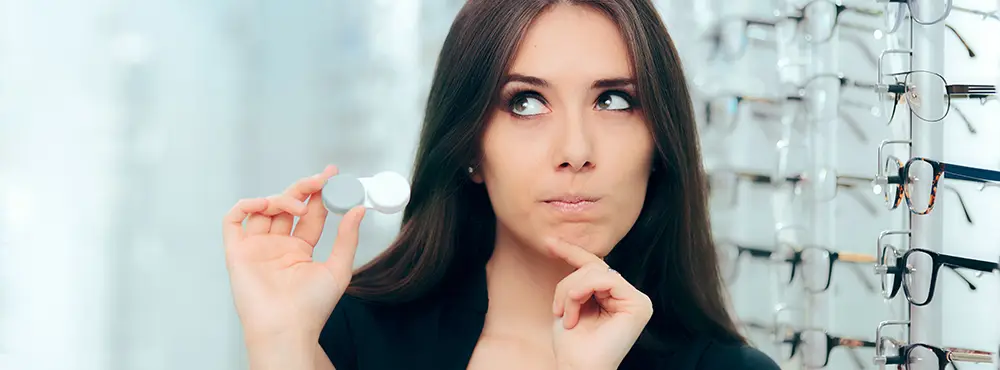Can children wear contact lenses?
There is technically no minimum or specifically recommended age when someone can start wearing contact lenses. It’s less a matter of age, and more about whether your child can handle the responsibility and if you are able to help monitor their use. Wearing contact lenses requires an easy, but daily, regimen that follows a high standard of hygiene. While complications are rare, they can arise if lenses aren’t worn properly and correct advice is not followed.
Before taking your child for a contact lens fitting, ask yourself whether they can follow instructions well and do things without forgetting or being told twice. Contact lenses can bring many benefits, for example, they can be particularly beneficial for children who enjoy playing sport.
Is it safe for children to wear contact lenses?
You should strongly consider the reason why you and your child are considering contact lenses. Will they be more convenient for sports? Does the child feel like they need to wear lenses because of peer pressure? Do they keep breaking or losing their glasses? The reason for wanting contact lenses will help the optician to select the most suitable options for your child’s individual needs. Contact lenses can be perfectly safe for children when the correct advice is followed, and it takes commitment from the child and the parent.
If your child has myopia, there are some lenses which can slow down the progression of it. Your optician will advise you about this if they decide it is the most appropriate option for your child.
If your child is active, contacts make a great alternative to glasses and can be worn on an occasional basis if preferred. The most suitable option would be a daily disposable contact lens, which can be worn when needed and does not require any cleaning or storage routine.
It is important that you educate your child on the importance of following correct procedures for good contact lens care. It is important to always wash and dry hands before application and removal of contact lenses, and even keeping those fingernails tidy and clean will help them to have a safe contact lens journey.
Do things change as you age?
There is no maximum age limit to when you have to stop wearing contact lenses. You'll find, however, that your prescription requirements may change, as will the quality of your tears, which can lead to dry eyes. This may impact the comfort of your contact lenses.
You may also experience certain age-related eye conditions such as presbyopia that will require you to wear multifocal contact lenses to help you read close up and see into the distance. These changes will be picked up by your optician during your regular contact lens check ups and eye tests. Children should have annual eye tests up to the age of 16.
Once your child has had their eyes checked, the optician will let you know how often they need to visit. Usually, it will be every six months or every year, depending on their particular needs. Children under 16 are entitled to a free NHS funded eye examination every year and are also eligible for an NHS optical voucher helps towards the cost of glasses or contact lenses.
Quick links:
A guide to presbyopia
Contact lenses and sports
Disclaimer: The advice in this article is for informational purposes only and does not replace medical care or an in-person check-up. Please check with an eyecare professional before purchasing any products or remedies. For information on our article review process, please refer to our Editorial Policy.

 Offers
Offers Account
Account
 Favorite
Favorite
 Basket
Basket

 OFFERS
OFFERS
















